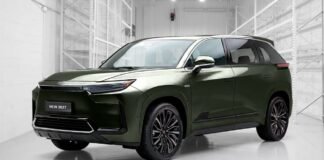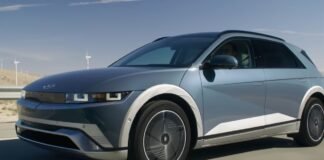The 2025 Volkswagen Transporter T7 introduces a series of enhancements in design, functionality, and performance, setting it apart from its predecessors. This new model, co-developed with Ford, shares many components with the Ford Transit Custom but retains Volkswagen’s signature styling. Its increased payload, towing capacity, and space make it ideal for a variety of commercial and passenger applications.
Design and Variants

The T7 offers several configurations, including panel vans, passenger versions, and crew cabs, allowing flexibility for different business needs.
Though based on the Transit Custom, Volkswagen added distinctive design elements such as sleeker headlights, echoing the Multivan, and a robust front bumper similar to the ID. Buzz. A Panamericana version with rugged black cladding and 19-inch alloy wheels is also available.
Interior Upgrades and Cabin Features

Inside, the T7’s cabin is an ergonomic workspace equipped with a 12-inch digital instrument panel and a 13-inch infotainment touchscreen.
These displays, while based on Ford’s system, are customized with Volkswagen’s fonts and colors. The larger interior dimensions allow for a bigger load area, accommodating up to 5.8 cubic meters of cargo in the standard model.
Powertrain Options and Performance
The 2025 Transporter comes with seven powertrain options, including turbo diesel, plug-in hybrid, and for the first time, fully electric models. The electric versions offer up to 286 horsepower with a 64 kWh battery, providing a range of approximately 200 miles.
Diesel options range from 110 to 170 horsepower, with the higher-powered models featuring an eight-speed automatic gearbox and optional all-wheel drive.
Increased Capacity and Versatility

Volkswagen has expanded the T7’s capacity, with the standard model able to carry up to 1.3 tonnes of payload. Additionally, its towing capacity has increased to 2.8 tonnes for diesel variants, and the dynamic roof load can now support up to 170 kg.
Release Date and Pricing
The 2025 Volkswagen Transporter T7 is expected to start at around €36,780 ($33,942), positioning it as a premium option in the commercial van segment. Offering diesel, plug-in hybrid, and electric versions, it competes with models like the Ford Transit Custom and Mercedes-Benz Vito.
It will be available for delivery in early 2025, with more details on its specifications and features to be released closer to the launch.
Competitors to consider

The 2025 Volkswagen Transporter faces tough competition in the commercial van segment, particularly from models that offer comparable powertrain versatility and functionality. Among its key rivals is the Ford Transit Custom, which benefits from a shared platform due to the Volkswagen-Ford collaboration.
The Transit Custom distinguishes itself with a strong payload capacity, multiple powertrain options—including diesel, plug-in hybrid (PHEV), and battery-electric—and an array of configurations tailored for diverse business needs.
The Mercedes-Benz Vito is another serious competitor, offering a premium interior and advanced safety technology. Available with diesel engines and the fully electric eVito, it provides businesses with a high-quality, eco-conscious alternative. Its robust build and versatile configurations position it as a direct challenger to the Transporter, excelling in both utility and comfort.
Expected Fuel Efficiency
The 2025 Volkswagen Transporter is set to offer a variety of powertrains, including diesel, plug-in hybrid, and all-electric options, each designed to enhance fuel efficiency and sustainability.
For diesel versions, the anticipated fuel economy will range up to 41 miles per gallon (mpg), depending on the specific engine configuration and driving conditions. The introduction of stop/start technology and efficient turbocharged engines should contribute to improved fuel consumption compared to its predecessors.
The plug-in hybrid variant is expected to significantly enhance fuel efficiency, particularly in urban driving, where the electric motor can handle shorter trips and lower speeds. Electric-only ranges for the hybrid version have yet to be confirmed but should provide considerable savings in fuel consumption.


